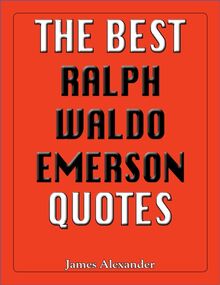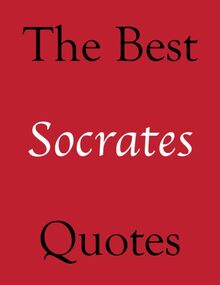-
 Univers
Univers
-
 Ebooks
Ebooks
-
 Livres audio
Livres audio
-
 Presse
Presse
-
 Podcasts
Podcasts
-
 BD
BD
-
 Documents
Documents
-
- Cours
- Révisions
- Ressources pédagogiques
- Sciences de l’éducation
- Manuels scolaires
- Langues
- Travaux de classe
- Annales de BEP
- Etudes supérieures
- Maternelle et primaire
- Fiches de lecture
- Orientation scolaire
- Méthodologie
- Corrigés de devoir
- Annales d’examens et concours
- Annales du bac
- Annales du brevet
- Rapports de stage
La lecture à portée de main
Vous pourrez modifier la taille du texte de cet ouvrage
Découvre YouScribe en t'inscrivant gratuitement
Je m'inscrisDécouvre YouScribe en t'inscrivant gratuitement
Je m'inscrisEn savoir plus
Vous pourrez modifier la taille du texte de cet ouvrage
En savoir plus

Description
Sujets
Informations
| Publié par | Crombie Jardine Publishing Limited |
| Date de parution | 01 mai 2014 |
| Nombre de lectures | 2 |
| EAN13 | 9781291859256 |
| Langue | English |
Informations légales : prix de location à la page 0,0180€. Cette information est donnée uniquement à titre indicatif conformément à la législation en vigueur.
Extrait
INTRODUCTION
Mohandas Karamchand Gandhi, otherwise known as Mahatma (‘venerable’ or ‘great soul’) was born on 2 October 1869 in Porbandar, in Gujarat, western India, to an upper-class family.
He became an influential political and spiritual leader renowned for his non-violent civil rights crusade and leadership of the Indian independence movement. He is widely seen as the Father of the Nation in India.
In 1888, Gandhi studied law at University College London. He was called to the bar in 1891, then left London for India. In 1893, finding it difficult to make a successful living practising law in India, Gandhi went to Natal, South Africa, initially for a year. He extended his stay and his political views and leadership qualities developed and thrived as he witnessed first-hand the injustice to Indians and blacks. Whilst trying to get basic rights for Indians in South Africa, Gandhi was imprisoned more than once. During this time, his philosophy of ‘Satyagraha’ (‘devotion to truth’) or non-violent resistance really took shape. This direct action in the form of civil resistance was to define him and his activities henceforth.
In 1914, Gandhi returned to India and supported the Home Rule movement, fighting for Indian independence from the British Empire. He began organizing events such as the boycott of British goods, peaceful marches, protest fasts, and so forth.
In 1919, the Government of India Act introduced the provincial-level shared control of the government of India. Other areas of government control stayed with the Viceroy of India (Frederic Thesiger, Lord Chelmsford) for the time being, with the aim of introducing more self-governing institutions to India on a gradual basis.
Gandhi joined the Indian National Congress and took leadership in 1921, negotiating the independence of India. By this time he was a prominent figure in Indian politics whose campaigns included reducing religious conflicts, easing poverty and ending the concept of ‘untouchability’.
In 1922, Gandhi was imprisoned for his 1919-1922 civil disobedience campaign. After his release from prison in 1924, he spent time away from politics, trying to improve Hindu-Muslim relations.
In 1930, when the British had put a tax on salt, effectively establishing a government monopoly on it, Gandhi led a defiant c.200-mile march of people to the sea at Dandi to collect their own salt. He was imprisoned again and released in 1931.
In 1931, Gandhi went to the second London Round Table Conference on Indian constitutional reform organized by the British government.
In 1942, at the All-India Congress committee session in Bombay, Gandhi launched the ‘Quit India’ movement – a civil disobedience movement demanding ‘an orderly British withdrawal’ from India. This was to be Gandhi’s last Satyagraha. Under the Defence of India Rules, Gandhi and other members of the committee were arrested. Violent protests followed and some 100,000 people were imprisoned. In 1943, Gandhi went on a 21-day protest fast; a tactic he used to make a political statement. He was released from prison in 1944.
In 1944, Gandhi met with Muhammad Ali Jinnah, from the Muslim League, to discuss Hindu-Muslim relations. In 1940, Jinnah had pushed for the Lahore Resolution - a demand for a separate Muslim state of Pakistan.
-
 Univers
Univers
-
 Ebooks
Ebooks
-
 Livres audio
Livres audio
-
 Presse
Presse
-
 Podcasts
Podcasts
-
 BD
BD
-
 Documents
Documents
-
Jeunesse
-
Littérature
-
Ressources professionnelles
-
Santé et bien-être
-
Savoirs
-
Education
-
Loisirs et hobbies
-
Art, musique et cinéma
-
Actualité et débat de société
-
Jeunesse
-
Littérature
-
Ressources professionnelles
-
Santé et bien-être
-
Savoirs
-
Education
-
Loisirs et hobbies
-
Art, musique et cinéma
-
Actualité et débat de société
-
Actualités
-
Lifestyle
-
Presse jeunesse
-
Presse professionnelle
-
Pratique
-
Presse sportive
-
Presse internationale
-
Culture & Médias
-
Action et Aventures
-
Science-fiction et Fantasy
-
Société
-
Jeunesse
-
Littérature
-
Ressources professionnelles
-
Santé et bien-être
-
Savoirs
-
Education
-
Loisirs et hobbies
-
Art, musique et cinéma
-
Actualité et débat de société
- Cours
- Révisions
- Ressources pédagogiques
- Sciences de l’éducation
- Manuels scolaires
- Langues
- Travaux de classe
- Annales de BEP
- Etudes supérieures
- Maternelle et primaire
- Fiches de lecture
- Orientation scolaire
- Méthodologie
- Corrigés de devoir
- Annales d’examens et concours
- Annales du bac
- Annales du brevet
- Rapports de stage



















